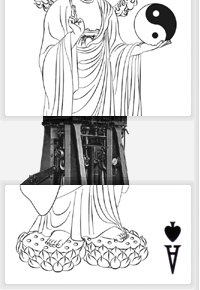我喜愛這種舊式的借書記錄。年代久遠, 紙張已發黃變脆。時代的見證。
這本著作, 靜靜的躺上書架上六載, 沒被移動分毫。它就這麼安然地坐在幽嫺的一角。也許, 也許有天, 某位對它的腹笥又感興趣, 會搜尋它, 找到它, 翻過一頁又一頁, 帶出那昏黃的紙張獨有的氣味。但那個年代, 定必只有口耳相傳罷。
它不在等待。它就只靜靜的坐著。人來人往, 彷彿與它有關, 彷彿沒有。
有一年, 一雙手帶它到一張看得見海的桌子。另一雙手蒼白而修長的手指摩挲它的皺紋。溫柔的眼神, 透過玻璃片, 呢喃它身上那些艱澀的詞句。往後好些年, 他偶或經過, 驀然佇足, 捧起它, 翻到這小小的記錄, 良久看那小印, 回想那淡淡的鹽味。
標籤:
.bwd.,
瞎扯淡
訂閱:
發佈留言 (Atom)




3 留言:
這本書是否叫"老人護理手冊"?
這令我想起"情書"那套電影..
女主角要在多年之後才知道自己的學生時期暗戀對象曾在一本書的借書記錄後面畫了自己的樣子...
瘡: "Consider as an example the question 'What is time?' as Saint Augustine and others have asked it. At first sight what this question asks for is a definition, but then immediately the question arises: 'What should we gain by a definition, as it can only lead us to other undefined terms?' And why should one be puzzled just by the lack of a definition of time, and not by the lack of a definition of 'chair'? Why shouldn't we be puzzled in all cases where we haven't got a definition? Now a definition often clears up the grammar of a word. And in fact it is the grammar of the word 'time' which puzzles us. we are only expressing this puzzlement by asking a slightly misleading quetion, the question: 'What is...?' This questions is an utterance of unclearity, of mental discomfort, and it is comparable with the question 'Why?' as children so often ask it. This too is an expression of a mental discomfort, and doesn't necessarily ask for either a cause or a reason. (Wittgenstein, The Blue Book, p26).
希望你的瘡早日康復。
祈: "情書"我沒看... 人與外界一切的相遇相交相錯, 背後都有其因, 並非偶然。昨天下午, 初冬的寒風乘著陽光掠過我的小腿。彷彿湊合了一剎的惘然, 故書小文一則。
發佈留言